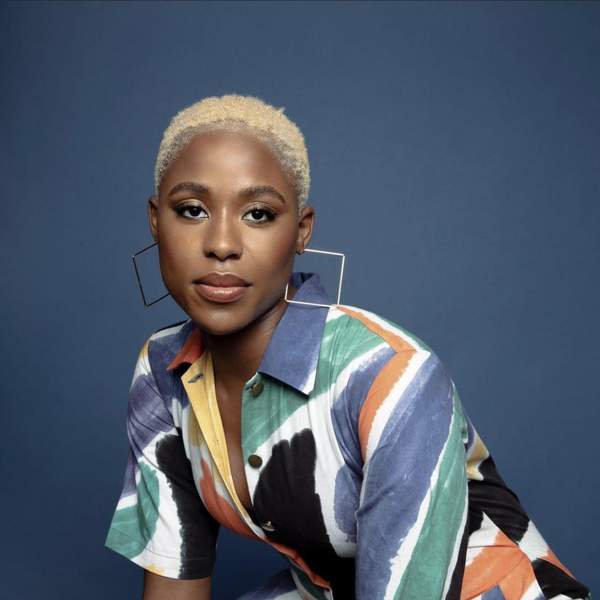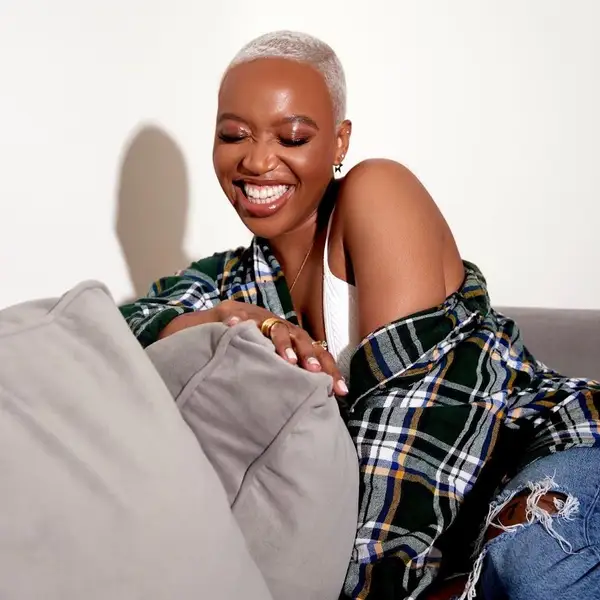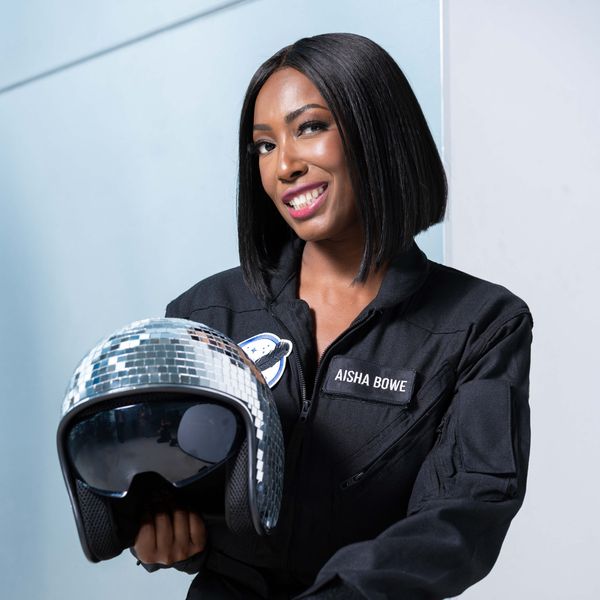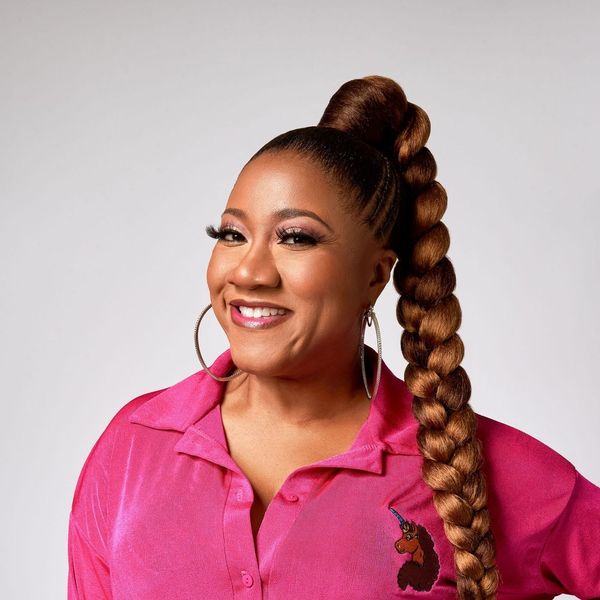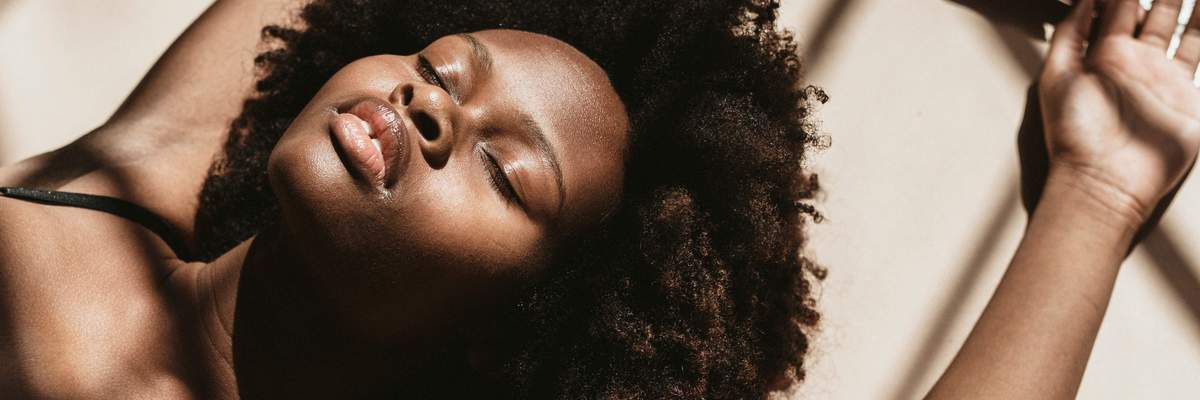Y'all remember the show Girlfriends? It was my first introduction to what my 20s could possibly look like with my closest friends. For me, it was a nice dream for little ol' me to look forward to when I grew up. Now that I’m grown, honey, adulting is not a joke. There are many responsibilities to have, mistakes to make, and breakups to recover from. It is a struggle but a beautiful one. Today, there are a few shows that still highlight amazing Black women living their lives and navigating the ups and downs with their day-ones by their side.
These are the types of shows that remind us that while we all have our not-so-good moments, our girls are there for support, making life just a little bit easier. If you haven’t heard, there's a fairly new Amazon Prime series, created and executive produced by Tracy Oliver, called Harlem. This series is a comedy narrated by a character named Camille (played by Meagan Good) and includes her three best friends as they navigate their 30s in Harlem, N.Y.
One of the three best friends is Tye, a queer woman who left the corporate world and created her own dating app for LGBTQAI+ people of color, and she's played by the vibrant and loving actress, Jerrie Johnson. I figured it was only right to have a chat with Jerrie for an exclusive xoNecole interview and get to know the woman behind the Harlem series' tech entrepreneur.
xoNecole: [In 'Harlem'], we definitely see Tye's development throughout the show in her portrayal of what it looks like to show up for yourself and your friends. What's an important lesson you’ve learned about showing up in your own personal life?
Jerrie Johnson: Well, I’m a very drop-everything-for-someone-who-is-going-through-something type of girl. Literally last night, I was preparing to wash my clothes. My friend was having some issues and I felt she wasn’t in the best headspace. I got dressed, met up with a couple more of our friends, and we all went down to Brooklyn to see her. Now, mind you, I live in Harlem. People ain’t just hopping over to Brooklyn any given day. Now the thing with [my character] Tye is, she's really good at setting boundaries.
She mentions in a scene that she is not comfortable to share her business contact with her friend. For me, I would have been quick to text it for my friend without even thinking about it. Not to say that what Tye did in that moment was wrong or right. It’s just something that I am incorporating into my life now. Showing up for people differently than they show up for you doesn't make you a bad friend. You may not always be able to just get up and go to Brooklyn when your friend is in trouble. So, I am learning to show up by setting more boundaries.
"Showing up for people differently than they show up for you doesn't make you a bad friend. You may not always be able to just get up and go to Brooklyn when your friend is in trouble. So, I am learning to show up by setting more boundaries."
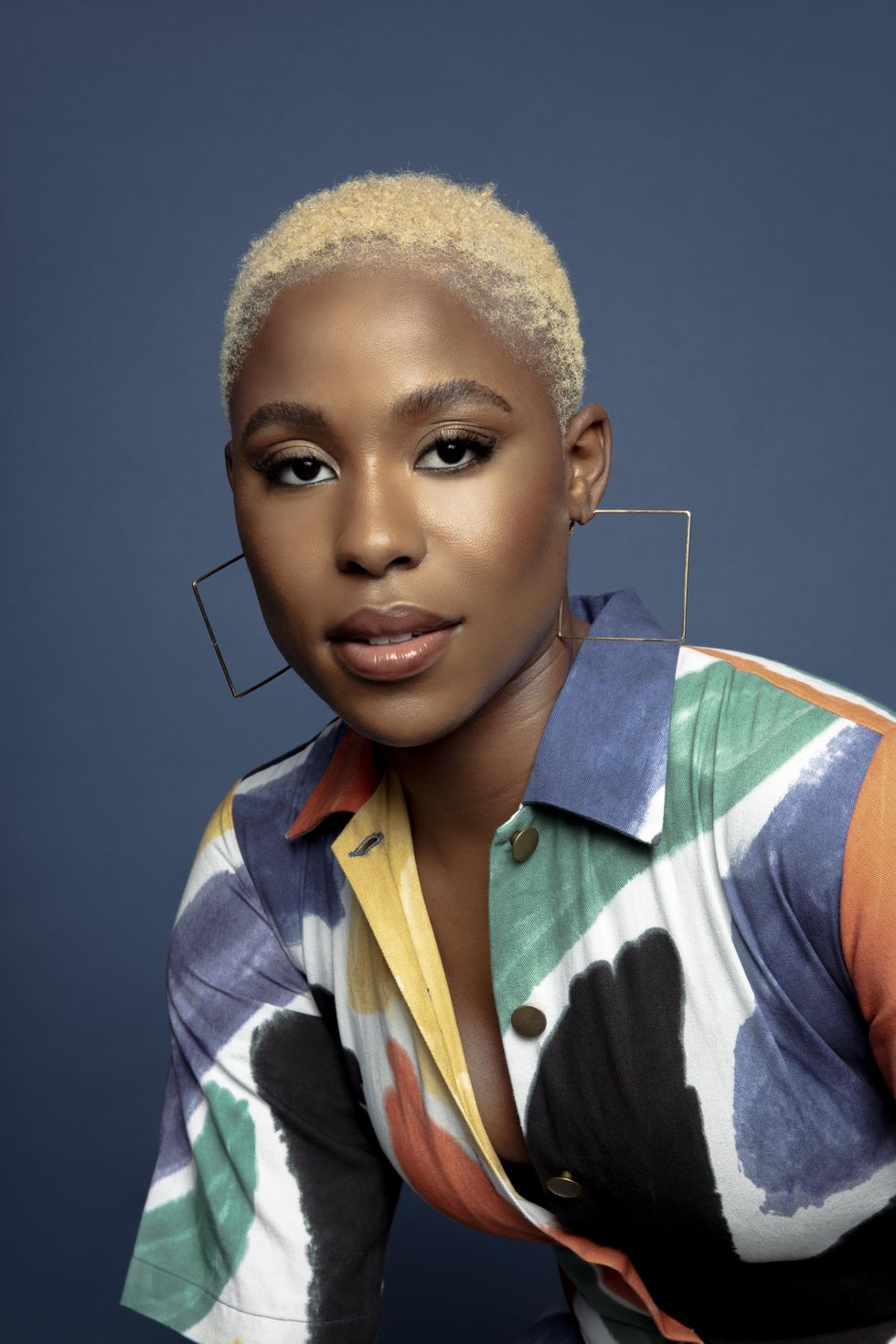
Cecile Boko
The show also talks about the trope of being a strong Black woman. There's a moment where we see Tye not wanting to be seen as weak by her friends. Are there moments during your day where you put self-care at the top of your to-do list?
There have been multiple moments in my life where I have learned to prioritize self-care. One example is when I was in undergrad, I was in a lot of activities. The amount of things I juggled with the amount of time I had still baffles me to this day. This was around the time of the Michael Brown incident, and I personally couldn’t even get out of bed. It was probably a combination of exhaustion and depression. There is a thing that happens with my body when I am exhausted. I start to lose my voice, so when that happens, I [know I] need to slow down.
What is real for me is that I like to show up 100 percent in every room I am in, but sometimes I have to gauge the amount of energy I can realistically give. I say to myself, 'Alright Jerrie, we only have 20 percent to give right now.' My body has been trained to go to that 100 percent level, but I have to reel it in and only give the 10 out of the 15 percent or just the 20 percent.
Admittingly, there is a guilt that we, as Black women, feel when we practice the act of self-choosing. What advice do you have for other women who struggle with saying the word “no”?
When a person first starts to create boundaries, guilt is a normal response, so don’t feel guilty about feeling guilty. I would say the first thing you should do is forgive yourself for the moments that you didn’t put yourself first. The second thing I would say is to recognize what the [reason] is for feeling that you cannot set boundaries. I am one of eight children—seven who are still alive—and I grew up in a household where my mom didn’t hug me. My mom didn’t come to my shows or give me that kind of support others seek from their parents.
Because of that, I overcompensate support and do not want people to feel the way I felt growing up. I leave myself on the line for others more than I should. It’s really about healing those childhood traumas to understand why we do the things we do. We like to celebrate people who are caregivers and people-pleasers. There is nothing wrong with tending to other people’s needs, but if it means leaving yourself in the dust, then it does turn into something that’s not okay. Lastly, empower your 'no.' Be proud of your 'no.' Practice saying 'no,' and revel in that good feeling you get after you say it.
"There is nothing wrong with tending to other people’s needs, but if it means leaving yourself in the dust, then it does turn into something that’s not okay. Empower your 'no.' Be proud of your 'no.' Practice saying 'no,' and revel in that good feeling you get after you say it."
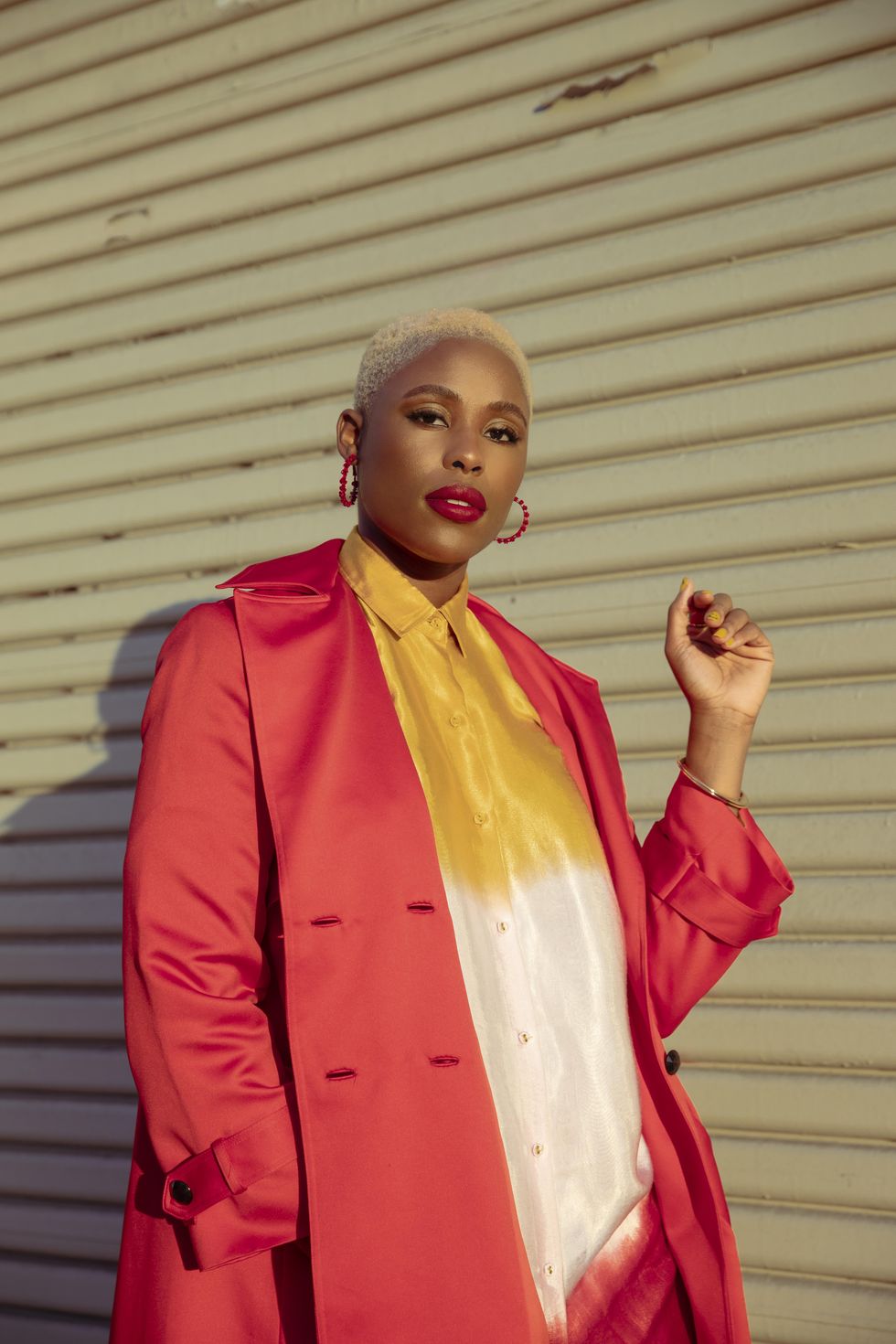
Cecile Boko
In the series, we see how important it is to have a sense of community as you navigate through life. How important is it for you to have your main tribe or crew?
Growing up, I didn't really have a clique nor was I ever a cliquey person, so, when I was in undergrad, I yearned for that. You hear the stories from other people stating that they have been friends since their freshman year of college or they go on vacations together—you know, stuff like that—and I didn’t really have that. Now I have friends. But most of my friends already have their friend groups, and I’m like the plus one. So to be a part of the group now, with the friends I mentioned before, allows me to really appreciate adult authentic relationships. It is near and dear to my heart.
Life isn’t always easy, especially when you are juggling a career in the entertainment industry. When you feel overwhelmed, or you don’t feel at your best, how do you usually handle it?
Well first, I listen to a ton of Abraham-Hicks videos and that gets me in my bag! Then I like to listen to a playlist of my favorite songs that I know are going to get me out of the funk. I also try to write things out since I’m a writer as well. But if there’s any resistance to the first few things, I practice tapping, and I recite affirmations for myself. I will say things like, "I am feeling really unbalanced right now, but I love and accept myself." After that, I feel so much better.
Let's talk about the importance of wellness and self-care again. How has practicing self-care helped you become a better person as well as a better actress?
My favorite type of self-care is watching my campervan shows. I like to light my candles and maybe indulge in some vegan ice cream. I love HGTV, interior design videos, and I am obsessed with watching people create their own campervans and go off the grid. I think, when it comes to self-care, when we do certain things because it works for other people and it doesn’t necessarily work for us, we get further away from our true essence. If my first instinct is to go on YouTube and watch a campervan video, I can’t judge myself for it. I can’t say, “Jerrie, you can’t watch a campervan video for self-care. That is so weird. You should be taking a bath instead, or [to] do some yoga.'
If I end up doing yoga, I know deep down it’s not my truest desire. My philosophy is to always follow my desire. If I do what I desire for self-care, when I get a script or I’m on set, I’m not judging my instincts or desires for my character, either. It just helps me not to put restrictions on Tye or any other character I play. People do weird things. I know I do weird sh*t all the time and that’s okay. If I were to put limitations on Tye, it would have closed the box of all the possibilities there are for her to be.
"My philosophy is to always follow my desire. If I do what I desire for self-care, when I get a script or I’m on set, I’m not judging my instincts or desires for my character, either. It just helps me not to put restrictions on Tye or any other character I play."
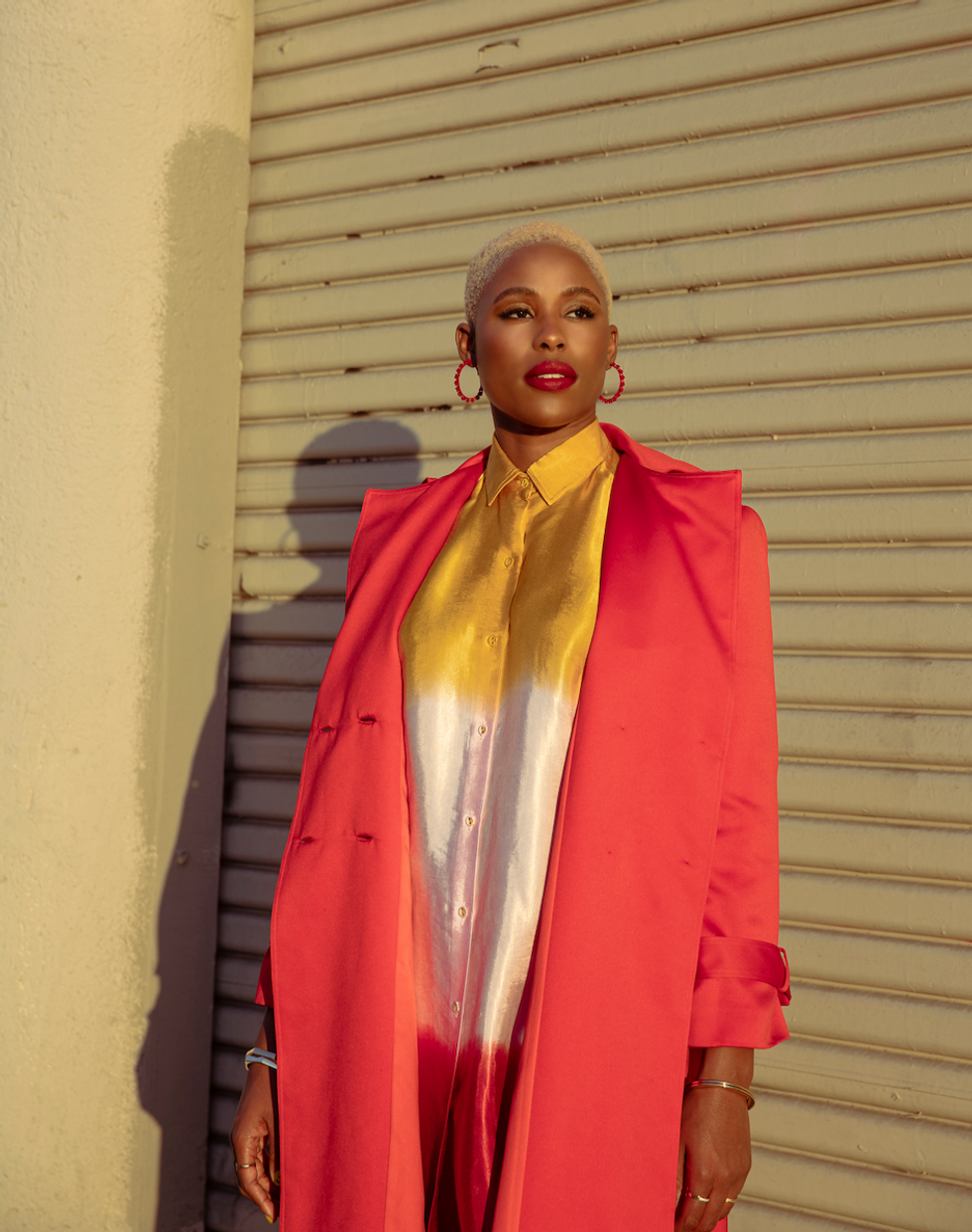
Cecile Boko
What is your motivation to keep working toward your goals?
I do this for my hood n****s. I feel like I haven’t seen a lot of people just doing it for the 'hood. Because I have transcended into different areas in my life, people assume that I have this certain way of living, but in reality, when I go back home, I go back to the 'hood. My main goal is to really heal the 'hood. There are so many things I have learned from where I came from.
We are so used to being consumers and there are people who still do not know how to economize or capitalize off of their gifts. We can really branch out into fields that we didn’t think were possible, similar to what Tye is doing in Harlem. We are so used to having limited resources, [so] we have been forced to be creative in so many different ways. I don’t care to make things for rich people. I care to be an inventor or a creator for my people in the 'hood that are trying to find a way to be better but keep getting pulled back into the same cycles.
What does success mean to you versus happiness?
I think success and happiness are directly correlated. I feel like success for me is living in my authentic truth. Success for me isn't attached to any worldly possession. All of that comes and goes. I’m interested in figuring out how I can elevate the human species, spreading light and joy, and getting to the truth about what our purpose is. When I reach that level of seeing the results of my manifestations, then that is what happiness means to me. I am able to share the information I have learned to others. I want everyone to know everything that I know.
Reflecting on where you are in life right now, what would you say to your younger self?
I would say that everything is going to be alright. Don’t be so hard on yourself, and allow yourself space—room to breathe. I didn’t have the luxury when I was growing up to not be in survival mode. People would also say I was "too much" of something. So I would internalize that and be cautious about how I came off to people. I didn’t want people to criticize or judge me for simply trusting my own instincts. I'd encourage her to give herself grace and to understand that she is not responsible for other adults' feelings or behaviors. In my adult life, I have been reparenting myself.
I would [also] say to my younger self, I love you. There are so many people who love you and will love you. Everything will happen for you and don’t be stressed out about the how or when. Celebrate the now!
For more of Jerrie, follow her on Instagram here.
Featured image by Cecile Boko
- Meagan Good's Looks Almost Cost Her The Starring Role In Her ... ›
- Meagan Good, Grace Byers, Harlem Amazon Prime - xoNecole ... ›
- A Look Back on 'Harlem' Season One - xoNecole: Women's Interest, Love, Wellness, Beauty ›
- Harlem Season 2 Review - xoNecole: Women's Interest, Love, Wellness, Beauty ›



